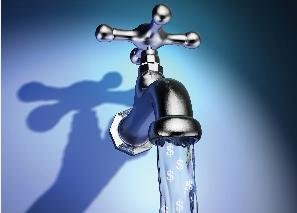In places where it snows heavily like the Midwest, there are unique but often overlooked water pollution concerns. Every year, snowmelt reveals contaminants and sediments which, at best, make water treatment plants work harder, and at worst pose a danger to public water sources. Here is what to look out for and how to help lower the chances of unnecessary pollution:
1. Concern: The overuse of road salt. When it rains or the snow melts, the salt easily runs into nearby storm drains, streams and so on. Road salt itself contains chloride which is toxic and can build up in water over the course of years. It also encourages premature snowmelt, which can cause an overflow of runoff or other everyday contaminants to run into water, like fertilizer.
What to do: Make sure to shovel the area before salting, and always use salt sparingly. A trick some people use is filling a mug with salt and only using what’s inside the mug, rather than taking the entire bag outside. Another option is to find alternatives to salt. Some safer options include the less toxic magnesium chloride, coffee grounds and natural, environmentally-friendly cat litter.
2. Concern: Animal waste buildup. Unfortunately, the cold weather can cause some to become more lax about picking up after their pets. In particular, designated pet waste areas can become overly contaminated over the course of several weeks. Then, when the snow melts, the runoff carries that waste into the waterways.
What to do: No matter how cold, always pick up after your animal! Especially in public areas but also in your own yard. If possible, try to keep the areas where they go in your front or backyard shoveled and snow free, so that waste doesn’t build up.
3. Concern: Lack of proper snow removal. When we allow snow to build up, along with ice underneath, this can trap all sorts of pollutants (like those mentioned above) which will eventually run into the water. In some larger cities, we’re accustomed to the local government removing the majority of snow from the roads and public areas. However, no matter where we live, our yards, sidewalks, driveways and other smaller areas need to be regularly cared for to prevent contaminants from building up.
What to do: Don’t always expect the city to plow for you. Research or get advice from a professional on the proper equipment needed, and do your best to keep your immediate areas clear. In the event of larger snowstorms, don’t attempt to take care of it by yourself. If push comes to shove, hire a professional.
For access to open water pipe bids and other municipal water bids, subscribe to our database. For more interesting articles on similar topics visit our blog page.

